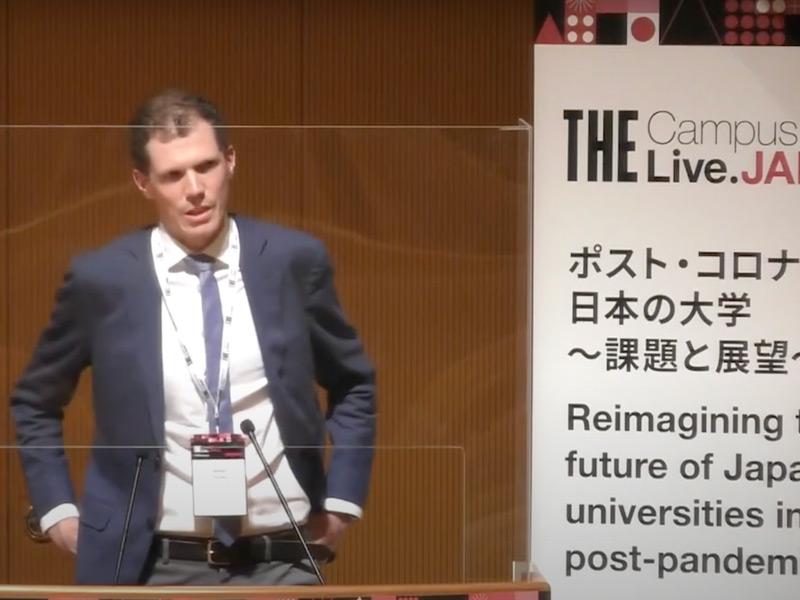
The University of Leeds takes a ‘digital by default’ strategy to drive inclusivity and authentic assessment

The ‘digital by default’ strategy at the University of Leeds has been designed to make assessment fair, inclusive, authentic and digitally enabled, a panel heard during a discussion held at THE Digital Universities UK 2023, in partnership with Gradescope by Turnitin.
The university launched its digital by default strategy in September 2021. Samantha Pugh, academic lead for digital assessment at the University of Leeds, explained that ‘digital by default’ doesn’t mean assessment can only be digital, but that educators must always consider whether it can be. Nor does it mean remote, she added. “The assessment might be carried out in person, but the marking could be done digitally. The feedback could be done digitally.” The university’s policy states that it will make optimal use of digital platforms to support diversity, inclusivity and to improve efficiency.
Digital solutions like Gradescope by Turnitin were critical in helping to digitise the marking process and gain efficiencies for both formative and summative assessments. Pre-pandemic, Leeds had already begun its move to digital assessment with Gradescope by Turnitin. In 2020, the global crisis quickened its implementation, with surprising results. “I never expected to have colleagues literally pleading with us to be able to mark stuff digitally,” Duncan Borman, digital education academic lead at the University of Leeds, said of the post-pandemic return to paper scripts.
When speaking about Leeds’ implementation of Gradescope, Pugh said: “Everyone really liked it. It gives you really good analytics about your assessment question by question, so you can see which areas students are struggling with or if certain questions are going really well.”
Emerging issues with artificial intelligence have since forced faculties to rethink the nature of assessments. This has led to conversations that assess current methods against the key tenets of the digital by default approach: that assessment should be fair, inclusive, authentic and digitally enabled.
Pam Birtill, academic lead for implementation of assessment strategy at the University of Leeds, said there was a need to include everyone at the university when driving change. “We need to develop our assessments so that they’re inclusive, supportive and well-scaffolded. That involves bringing staff along with us as well as the students. It’s about giving everybody the skills,” she said.
Alice O’Grady, dean of student education (quality and standards) at the University of Leeds, agreed that changes must be based on felt experiences. “We have to keep talking to students and staff and all of those stakeholders about their experience of what it’s like. And that takes time. When we run pilots or we trial things, I think we really have to listen about how that feels,” she said. It is particularly important to hear from students with disabilities. “We make adjustments where we need to,” Birtill said.
Along with the changes made to assessments, the University of Leeds is also redesigning every undergraduate and postgraduate course to align with the digital by default strategy.
Overall, the university’s approach to its digital by default strategy is to look at where digital technologies can help deliver better assessment and feedback practices. By using Gradescope by Turnitin, the university was able to see improvements in marking while upholding rigorous assessment standards.
Find out more about Gradescope by Turnitin.

